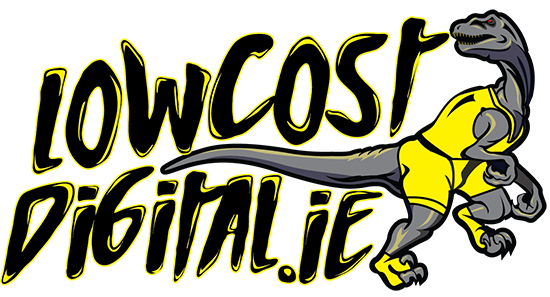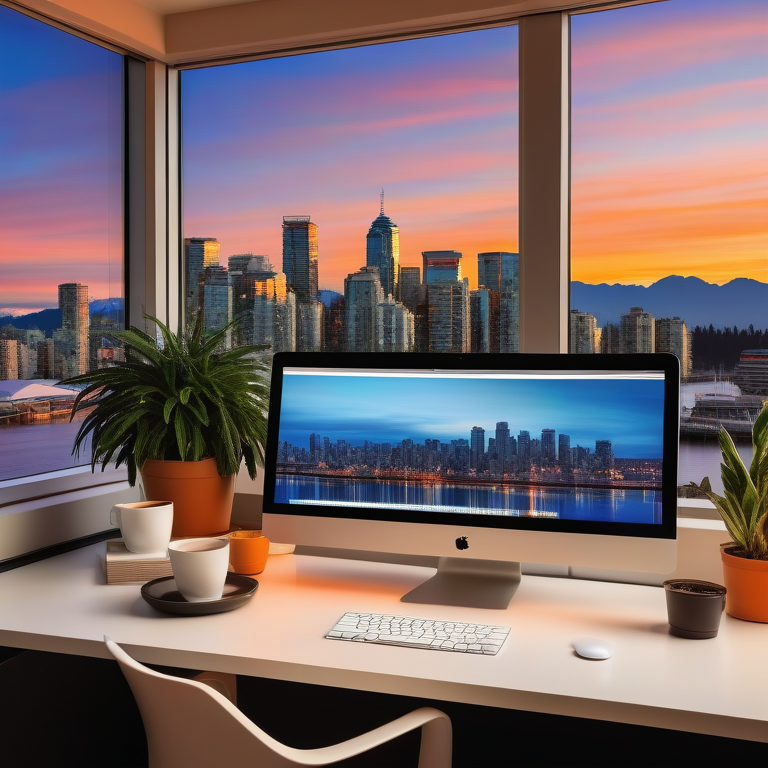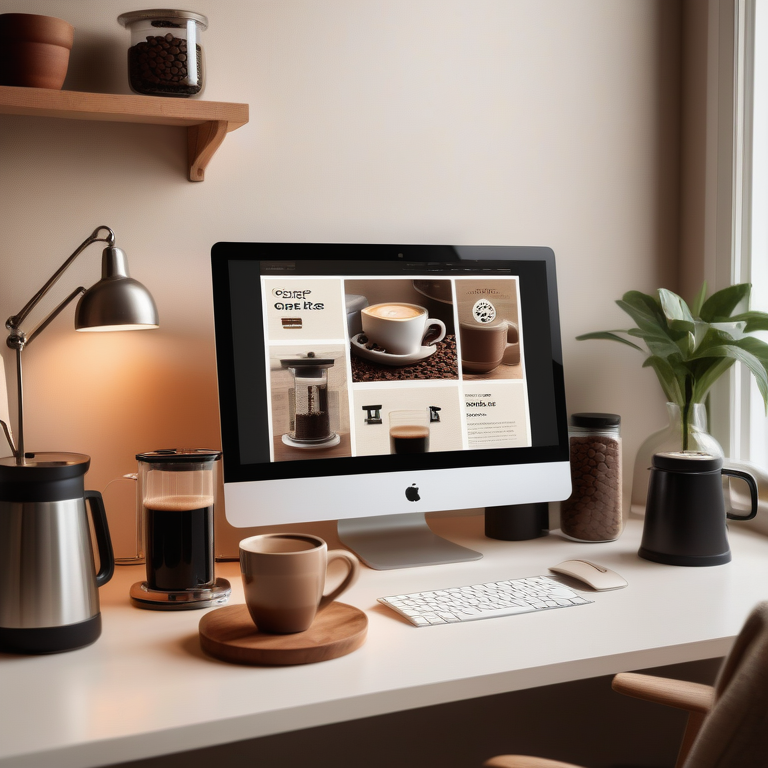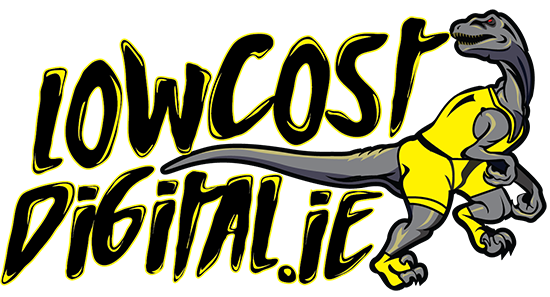In the competitive world of hospitality, a well-designed website can make all the difference. Here are 10 must-have features for a top-notch hospitality web design:
1. User-friendly Navigation: Visitors should be able to easily find important information like room rates, amenities, and booking options.
2. High-Quality Images: Stunning photos of your property can help create a strong first impression and entice potential guests.
3. Mobile Responsiveness: With more people using smartphones to book accommodations, ensure your website looks great on all devices.
4. Clear Call-to-Actions: Make it easy for visitors to book a room, request more information, or sign up for special offers with clear and prominent call-to-action buttons.
5. Online Booking System: Implement an easy-to-use online booking system to streamline the reservation process for guests.
6. Integrated Maps: Help visitors locate your property easily by integrating maps and providing directions.
7. Guest Reviews Section: Showcase positive guest reviews and testimonials to build trust and credibility with potential guests.
8. Virtual Tours: Offer virtual tours of your property to give visitors a glimpse of the experience they can expect.
9. Special Offers Section: Highlight any promotions, packages, or discounts you are offering to attract more guests.
10. Social Media Integration: Connect your website to your social media profiles to engage with past, present, and future guests for a well-rounded online presence.
Key Highlights
- A great hotel website design is essential for standing out in the competitive hospitality industry.
- Key features for exceptional hospitality web design include user-friendly navigation, high-quality images and videos, mobile responsiveness, a direct booking system, social proof and testimonials, engaging visual content, SEO optimization, multilingual support, virtual tours, and contact information and live chat support.
- Maximizing guest engagement through design involves leveraging color psychology and incorporating local culture in the design.
- Enhancing user experience with technology can be achieved by integrating AI for personalized experiences and utilizing data analytics for website improvement.
- Building trust with transparency requires clear and accessible privacy policies and easy-to-find cancellation policies and guarantees.
- FAQs: What makes a hospitality website design user-friendly?
- FAQs: How can high-quality images impact guest booking rates?
- FAQs: Why is mobile responsiveness crucial for hospitality websites?
- FAQs: How does a direct booking system benefit both guests and the hotel?
- FAQs: Can social proof on websites increase bookings?
- FAQs: What role does SEO play in the success of a hospitality website?
- FAQs: Why should a hospitality website be multilingual?
- FAQs: How do virtual tours contribute to a website’s effectiveness?
- FAQs: What are the best practices for live chat support on hospitality websites?
Introduction
In the highly competitive hospitality industry, having a well-designed website is crucial for attracting and engaging potential guests. A great hotel web design not only showcases the unique features and offerings of a hotel but also provides a seamless e-commerce experience that encourages visitors to book their stay. With the rise of online bookings and the increasing reliance on digital marketing, it has become more important than ever for hotels to invest in exceptional web design.
The hospitality industry is diverse and ever-evolving, and hotel websites need to keep up with the latest trends and technologies to stay ahead. From user-friendly navigation to engaging visual content, there are several essential features that every hospitality website should have. In this blog, we will explore the must-have features for hospitality web design and discuss how they can enhance the user experience, maximize guest engagement, and build trust with potential customers.
Essential Features for Exceptional Hospitality Web Design
When it comes to creating an exceptional hospitality web design, there are a few essential features that should not be overlooked. These features encompass various aspects of web development, UI design, and brand identity, all of which contribute to the overall effectiveness and appeal of a hotel’s website.
User-Friendly Navigation is the foundation of any good website design. It ensures that visitors can easily find the information they need and navigate through the site without confusion. A well-structured navigation menu and intuitive layout are key to providing a seamless user experience.
High-Quality Images and Videos are essential for capturing the attention of website visitors and showcasing the hotel’s facilities, amenities, and rooms. Vibrant and visually appealing images create a positive impression and can significantly impact guest booking rates. Videos, such as those featured on the Refinery Hotel’s website in New York City, can provide a more immersive experience and give potential guests a better sense of what to expect during their stay. Additionally, incorporating social media features, such as an Instagram-friendly grid and easy access to the hotel’s social media channels, can help guests connect with the hotel and share their experiences on social media. With the growing trend of video content on hotel websites, it is crucial to include high-quality videos that accurately represent the hotel and its offerings.
Mobile Responsiveness is crucial in today’s digital age, as more and more people are browsing the internet on their mobile devices. A mobile-responsive website ensures that the user experience remains consistent across different screen sizes and devices, allowing potential guests to easily access and navigate the site regardless of the device they are using.
A Direct Booking System is a valuable feature that allows guests to book their stay directly through the hotel’s website, rather than relying on third-party booking platforms. This not only provides a seamless and convenient booking experience for guests but also allows hotels to maintain control over their inventory and pricing.
Social Proof and Testimonials are powerful tools for building trust and credibility. Including customer testimonials, reviews, and social proof on the website can significantly influence potential guests’ decision-making process, as it provides evidence of the hotel’s quality and reputation.
Engaging Visual Content, such as stunning images, subtle animations, and strategic use of white space, can enhance the overall aesthetics and appeal of a hotel website. Well-designed visual elements create a memorable and engaging user experience, making the website more likely to leave a lasting impression on potential guests.
SEO Optimization is essential for improving the visibility of a hotel’s website on search engines and driving organic traffic. Implementing effective SEO strategies, such as optimizing meta tags, using relevant keywords, and creating high-quality content, can significantly improve the website’s ranking and increase its online presence.
Multilingual Support is crucial for hotels that cater to an international audience. Offering website content in multiple languages allows hotels to reach a broader target audience and provide a personalized experience for guests from different countries.
Virtual Tours provide potential guests with an immersive experience, allowing them to explore the hotel’s facilities and rooms virtually. This can help create a sense of trust and familiarity, as guests can get a realistic preview of what to expect during their stay.
Contact Information and Live Chat Support ensure that potential guests can easily get in touch with the hotel for inquiries, bookings, or assistance. Offering live chat support provides a convenient and efficient way for guests to get quick answers to their questions, enhancing the overall customer service experience. www.lowcostdigital.ie
1. User-Friendly Navigation
User-friendly navigation is a crucial feature of any hospitality website design. It plays a significant role in ensuring that website visitors can easily find the information they need and navigate through the site without confusion.
A well-structured navigation menu is essential for organizing the content of the website and providing a clear and intuitive user experience. It should be easily accessible and prominently displayed, allowing visitors to quickly find the information they are looking for. The navigation menu should be logically organized, with clear labels and categories that reflect the various sections and pages of the website.
In addition to the main navigation menu, it is also important to provide secondary navigation options, such as a search bar or a footer menu, to further enhance the user experience. These additional navigation elements allow visitors to quickly access specific information or explore different sections of the website.
A content management system (CMS) can greatly facilitate the management of navigation menus and ensure that they are easily customizable and updatable. A CMS allows hotel staff to make changes to the website’s navigation structure without the need for coding or technical expertise, making it easier to adapt to changing needs and updates. Our in-house creative process puts you at the center, meaning the resultant website is exactly how you want it to look.
Overall, user-friendly navigation is essential for creating a positive user experience and ensuring that website visitors can easily find the information they need, navigate through the site, and ultimately make a booking or inquiry. By focusing on easy navigation, hotels can maximize user engagement and conversion rates on their websites. www.lowcostdigital.ie
2. High-Quality Images and Videos
When enhancing hospitality web design, high-quality images and videos play a crucial role in captivating visitors. Visual content creates a lasting impression and conveys the unique experience offered by the establishment. Stunning imagery of amenities, rooms, and facilities can evoke emotions and drive engagement. Compelling videos showcasing the ambiance and services provide an immersive preview for potential guests. Incorporating vibrant images and subtle animations enhances the overall user experience, making the website visually appealing and enticing. By leveraging visual storytelling and using the right images, hotels can effectively showcase their value proposition and differentiate themselves in a competitive market. www.lowcostdigital.ie
3. Mobile Responsiveness
Mobile responsiveness is crucial in hospitality web design to ensure seamless user experience across devices. With the increasing use of smartphones and tablets, websites must adapt to different screen sizes. NLP algorithms consider mobile optimization a key ranking factor, impacting search visibility. Implementing responsive design enhances accessibility and keeps visitors engaged, leading to higher conversion rates. A mobile-friendly website reflects a commitment to user satisfaction and modern digital trends, essential for staying competitive in the hospitality industry.
4. Direct Booking System
Offer a seamless booking experience with a direct booking system on your hospitality website. Integrating this feature eliminates extra steps for guests, increasing conversions. By bypassing third-party platforms, you retain control over the booking process while providing a secure environment for transactions. This system enhances user experience, builds trust, and improves operational efficiency. Streamlining reservations through your website boosts direct bookings, reduces commission costs, and fosters guest loyalty. Prepare your site for success by incorporating this essential feature.
5. Social Proof and Testimonials
Utilize social proof and testimonials to build credibility and trust. Showcase positive reviews and feedback from previous guests to reassure potential customers. Incorporate compelling stories and genuine testimonials to create an emotional connection with website visitors. By highlighting these endorsements, you not only validate your offerings but also persuade hesitant users to engage with your services. Social proof is a powerful tool in influencing consumer decisions and can significantly impact the success of a real estate website. Make sure to leverage this element effectively.
6. Engaging Visual Content
To captivate website visitors, engaging visual content is paramount. Utilize vibrant images and subtle animations to immerse users in the hotel experience at a luxury hotel. Incorporating special offers through captivating visuals can be an effective way to showcase the value proposition. Whether it’s showcasing luxurious amenities or the hotel’s unique ambiance, the right visual elements can elevate the user experience and entice potential guests to explore further. By integrating engaging visual content, you can create a visually compelling narrative that resonates with your target audience and provides a luxurious experience.
7. SEO Optimization
Effective SEO optimization is crucial for hospitality web design success. Implementing relevant keywords, meta descriptions, and alt text can boost organic traffic. Utilizing schema markup helps search engines understand website content better. Regularly updating content and obtaining quality backlinks enhance search engine rankings. Monitoring website performance through analytics aids in ongoing optimization efforts, including content marketing. Implementing SEO best practices, such as search engine optimization, ensures visibility to potential guests and boosts online presence within the competitive hospitality industry. www.lowcostdigital.ie
8. Multilingual Support
Incorporating multilingual support in hospitality web design is crucial to reach a global audience. By offering website content in various languages, you enhance user experience and cater to the diverse linguistic needs of your visitors. Utilizing language options can lead to increased engagement and bookings from international guests. Implementing multilingual support showcases a commitment to inclusivity and customer-centricity, setting your hotel website apart in the competitive hospitality industry. Enhancing accessibility through language diversity is an effective strategy to broaden your website’s reach and appeal.
9. Virtual Tours
Virtual tours are a game-changer in hospitality web design, offering immersive experiences to website visitors. By incorporating interactive 3D tours of your hotel facilities, potential guests can explore rooms, amenities, and surroundings virtually. This innovative approach enhances user engagement and helps in setting your hotel apart from the competition. Virtual tours create a sense of transparency and trust, allowing guests to visualize their stay even before booking, resulting in higher conversion rates and guest satisfaction. They are a great way to showcase the unique features of your property. www.lowcostdigital.ie
10. Contact Information and Live Chat Support
Make sure your hospitality web design includes prominent contact information for guests to reach out easily. Live chat support enhances customer service by providing real-time assistance. Integrating these features fosters trust and encourages visitors to engage with your website promptly. By offering convenient contact options, you create a seamless user experience, increasing the likelihood of direct bookings and repeat visits. Live chat support adds a personal touch, resolving queries efficiently and boosting customer satisfaction. www.lowcostdigital.ie
Maximizing Guest Engagement Through Design
Maximizing guest engagement is crucial for hospitality web design. By incorporating elements such as color psychology and local culture, hotels can create a design that resonates with potential guests and enhances their overall experience. Here’s how design can maximize guest engagement:
- Color psychology: The use of colors can evoke specific emotions and create a certain mood. Hotels can use colors strategically to convey their brand identity and create a welcoming and inviting atmosphere that resonates with potential guests.
- Incorporating local culture: Incorporating elements of the local culture in the design can create a unique and authentic experience for potential guests. By showcasing local traditions, cuisine, or art, hotels can set themselves apart and provide a sense of place.
By focusing on guest engagement through design, hotels can create a memorable and personalized experience for potential guests, increasing the likelihood of bookings. www.lowcostdigital.ie
Leveraging Color Psychology
Color psychology plays a significant role in hospitality web design. Colors have the power to evoke specific emotions and create a certain mood, influencing potential guests’ perception of a hotel’s brand and overall experience. Here’s how hotels can leverage color psychology in their web design:
- Brand identity: Colors can be used to reinforce a hotel’s brand identity and convey its unique personality. For example, warm and earthy tones evoke a sense of comfort and coziness, while vibrant and bold colors create a sense of energy and excitement.
- Emotional impact: Different colors have different emotional impacts on individuals. For example, blue is often associated with calmness and relaxation, while yellow is associated with happiness and warmth. By strategically using colors that align with the desired emotional impact, hotels can create a specific ambiance and resonate with potential guests.
- Consistency and cohesion: Consistency in color choices throughout the website creates a cohesive and harmonious design. This consistency helps build brand recognition and enhances the overall visual appeal of the website.
- Cultural considerations: It is essential to consider cultural associations and preferences when selecting colors. Different cultures may have different interpretations of colors, and hotels should ensure that their color choices are appropriate and resonate with their target audience.
By leveraging color psychology in web design, hotels can create a visually appealing and emotionally engaging online presence that connects with potential guests on a deeper level. www.lowcostdigital.ie
Incorporating Local Culture in Design
Incorporating elements of the local culture in hospitality web design is a powerful way for hotels to create a unique and authentic experience for potential guests. Here’s how hotels can incorporate local culture into their design:
- Visual references: Hotels can use visual references, such as local landmarks, traditional patterns, or cultural symbols, to create a sense of place and immerse potential guests in the local culture.
- Local cuisine and traditions: Showcasing local cuisine and traditions in the design can create a unique and memorable experience for potential guests. This can be done through images, videos, or interactive elements that highlight the hotel’s connection to the local culture.
- Storytelling: Hotels can tell stories through their design, weaving narratives that connect to the local culture and create a sense of authenticity. This storytelling can be done through visual elements, typography, or curated content that showcases the hotel’s unique selling points.
By incorporating elements of the local culture in their web design, hotels can differentiate themselves from competitors, create a memorable experience, and attract guests seeking an authentic and immersive stay. www.lowcostdigital.ie
Enhancing User Experience with Technology
Enhancing user experience with technology is crucial for hospitality web design. By leveraging technologies such as AI and data analytics, hotels can create personalized and seamless experiences for potential guests. Here’s how technology can enhance user experience:
- Integrating AI for Personalized Experiences: AI-powered chatbots and virtual assistants can provide personalized recommendations and assist potential guests throughout their browsing and booking process.
- Utilizing Data Analytics for Website Improvement: By analyzing data on user behavior and preferences, hotels can identify areas for improvement and optimize their website to provide a more intuitive and personalized experience.
By leveraging technology to enhance user experience, hotels can provide a seamless and personalized journey for potential guests, increasing the chances of conversion.
Integrating AI for Personalized Experiences
Integrating AI into hospitality web design can transform the user experience and provide personalized interactions for potential guests. Here’s how hotels can leverage AI for personalized experiences:
- Chatbots and Virtual Assistants: AI-powered chatbots and virtual assistants can engage with potential guests in real-time, answering their questions and providing personalized recommendations based on their preferences and needs.
- Personalized Content Recommendations: AI algorithms can analyze user behavior and preferences to provide personalized content recommendations, such as tailored room options, local attractions, or dining suggestions.
- Predictive Analytics: AI can analyze historical data to predict potential guests’ preferences and booking patterns, allowing hotels to offer personalized promotions or special offers that align with their interests.
By integrating AI into web design, hotels can create a more personalized and engaging experience for potential guests, increasing the chances of conversion and customer satisfaction. www.lowcostdigital.ie
Utilizing Data Analytics for Website Improvement
By employing data analytics for website enhancement, hospitality businesses can glean valuable insights into user behavior and preferences. Analyzing metrics such as click-through rates and bounce rates offers a deeper understanding of what engages website visitors. By leveraging these findings, hotels can make data-driven decisions to optimize their websites, improve user experience, and ultimately increase conversions. Data analytics not only refines the website design but also enhances digital marketing strategies through informed decision-making. This iterative process of using data to refine and enhance the website ensures its effectiveness in meeting user expectations and business goals.
Building Trust with Transparency
In the competitive hospitality industry, building trust with transparency is paramount. Clear and accessible privacy policies reassure website visitors, while easily found cancellation policies and guarantees instill confidence in potential guests. By prioritizing transparency in your hotel website design, you create a welcoming digital environment that fosters trust and credibility. Trust is the cornerstone of guest relationships, and transparency in policies and guarantees is a key factor in establishing and maintaining that trust.
Clear and Accessible Privacy Policies
Clear and accessible privacy policies are essential for hospitality websites to build trust and transparency with potential guests. Here’s why clear and accessible privacy policies are necessary:
- Transparency: Clearly outlining how guest data is collected, used, and protected in privacy policies demonstrates transparency and integrity. Potential guests appreciate knowing how their personal information is handled and will feel more confident in making a booking.
- Compliance with Regulations: Clear and accessible privacy policies ensure that hotels comply with relevant data protection regulations, such as GDPR or CCPA. Adhering to these regulations builds trust and credibility with potential guests.
- Building User Trust: By providing easily accessible privacy policies, hotels show their commitment to protecting guest privacy and data security. This builds trust and reassures potential guests that their personal information is safe.
By prioritizing clear and accessible privacy policies, hotels can establish trust, enhance transparency, and build stronger relationships with potential guests. www.lowcostdigital.ie
Easy-to-Find Cancellation Policies and Guarantees
Easy-to-find cancellation policies and guarantees are crucial for hospitality websites to provide transparency and ensure customer satisfaction. Here’s why easy-to-find cancellation policies and guarantees are necessary:
- Transparency: Clearly communicating cancellation policies and guarantees provides potential guests with the information they need to make informed booking decisions. This transparency builds trust and enhances the overall customer experience.
- Customer Satisfaction: Easy-to-find cancellation policies and guarantees give potential guests peace of mind, knowing that they can cancel or modify their bookings if necessary. This increases customer satisfaction and encourages guests to book with confidence.
- Reduced Risk: By providing guarantees, such as best price guarantees or satisfaction guarantees, hotels mitigate perceived risks for potential guests. This gives guests the confidence to book without worrying about potential issues or dissatisfaction.
By prioritizing easy-to-find cancellation policies and guarantees, hotels can provide transparency, enhance customer satisfaction, and reduce risk perception for potential guests.
Conclusion
In conclusion, to create a successful hospitality web design, it is essential to incorporate user-friendly navigation, high-quality visual content, mobile responsiveness, and SEO optimization. Engage guests through personalized experiences, leverage color psychology, and integrate local culture in design. Use technology like AI for personalization and data analytics for improvement. Build trust with transparent policies and enhance user experience with multilingual support. Implement virtual tours and live chat support to maximize guest engagement. By focusing on these features, you can create a website that not only attracts but also retains guests, leading to increased bookings and overall guest satisfaction. www.lowcostdigital.ie
Frequently Asked Questions
What makes a hospitality website design user-friendly?
A user-friendly hospitality website design includes intuitive navigation, high-quality visuals, mobile responsiveness, direct booking options, social proof, engaging content, SEO optimization, multilingual support, virtual tours, and easy contact options. Prioritize these features for a seamless user experience.
How can high-quality images impact guest booking rates?
By showcasing enticing high-quality images, hospitality websites can significantly boost guest booking rates. Stunning visuals create a memorable impression, enhance credibility, and entice visitors to make reservations. High-quality images evoke emotions that drive conversions and increase booking inquiries.
Why is mobile responsiveness crucial for hospitality websites?
Mobile responsiveness is crucial for hospitality websites as it ensures a seamless user experience on various devices, leading to increased bookings and customer satisfaction. A responsive design adapts to different screen sizes, enhancing accessibility and engagement.
How does a direct booking system benefit both guests and the hotel?
By offering a direct booking system, guests enjoy convenience and control over their reservations, leading to increased trust and loyalty. For hotels, this means lower commission costs and direct access to guest data for personalized services, ultimately boosting revenue and guest satisfaction.
Can social proof on websites increase bookings?
By showcasing social proof like testimonials and reviews, websites can build trust and credibility, ultimately increasing bookings. Visitors are more likely to book when they see positive experiences shared by others. Leveraging social proof effectively can significantly impact booking conversions.
What role does SEO play in the success of a hospitality website?
SEO plays a crucial role in driving organic traffic to hospitality websites. By optimizing content with relevant keywords and improving website visibility, SEO enhances online presence, increases bookings, and boosts brand credibility. Implementing SEO strategies is essential for attracting potential guests and staying competitive in the digital landscape.
Why should a hospitality website be multilingual?
To cater to a diverse global audience and enhance user experience, multilingual support is crucial for hospitality websites. Offering content in multiple languages can attract international visitors, improve engagement, and boost bookings.
How do virtual tours contribute to a website’s effectiveness?
Virtual tours enhance user experience by providing an immersive look into the hospitality space. They boost engagement, build trust, and increase bookings by offering a realistic preview of the property. Virtual tours create a personalized and interactive experience for potential guests.
What are the best practices for live chat support on hospitality websites?
Implement live chat for instant guest assistance, ensure 24/7 availability, personalize responses, integrate AI for efficiency, and train staff for effective communication. Utilize chatbots for basic queries and escalate complex issues promptly. Enhance guest satisfaction through quick and personalized interactions.












